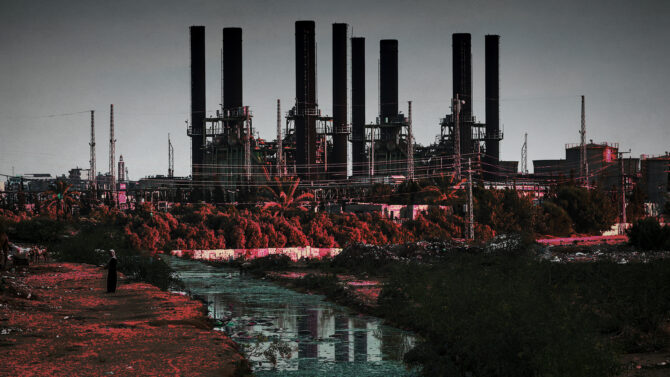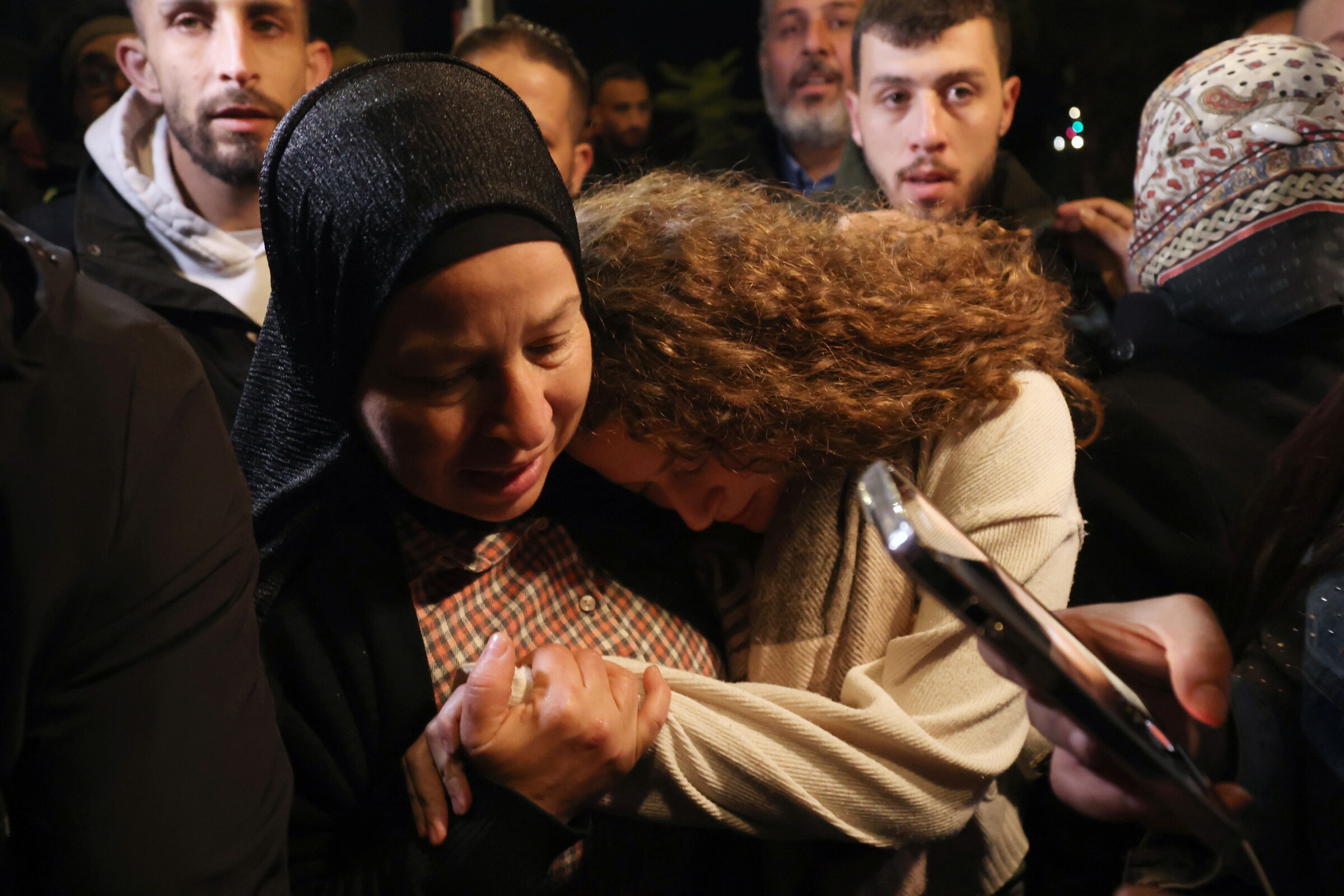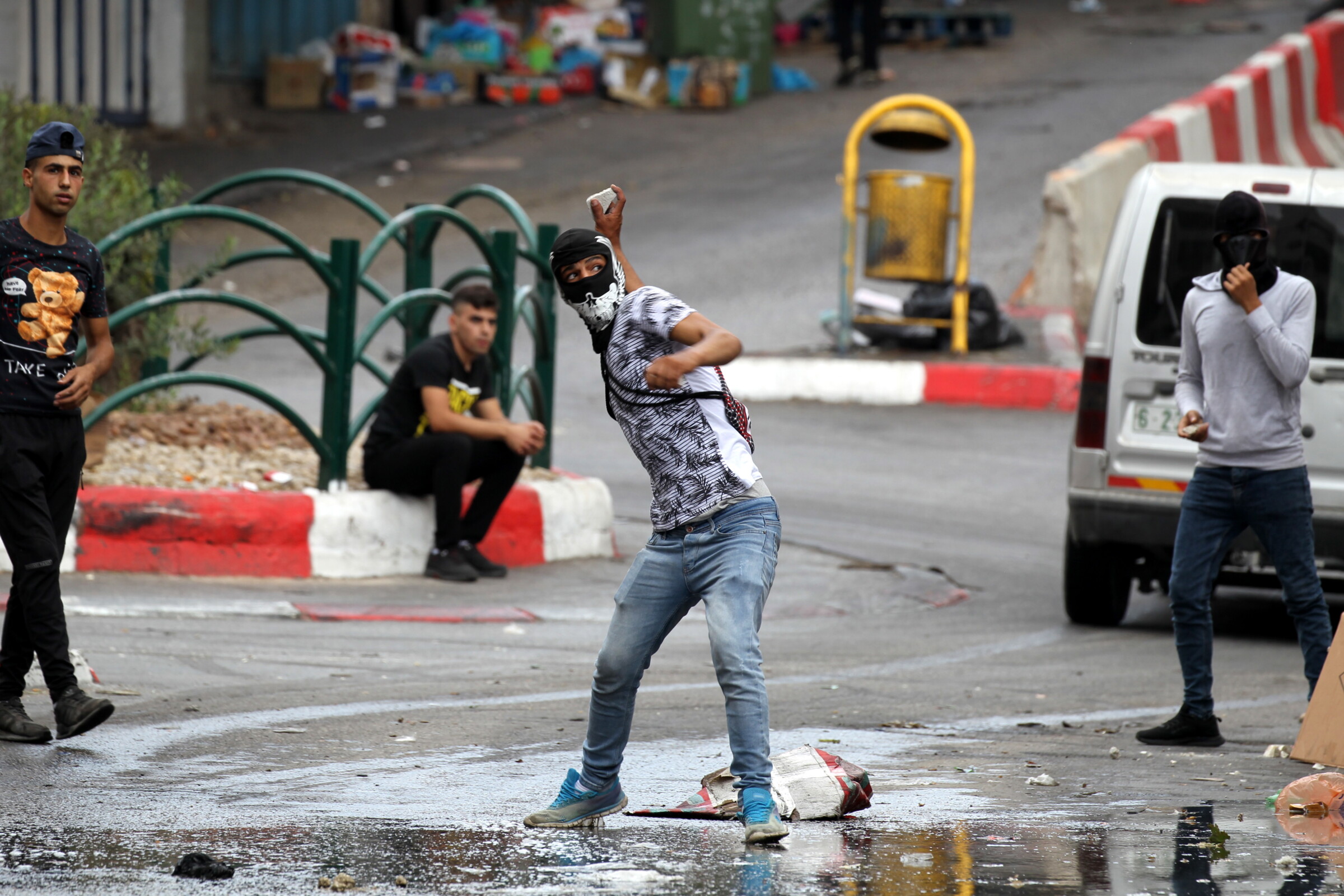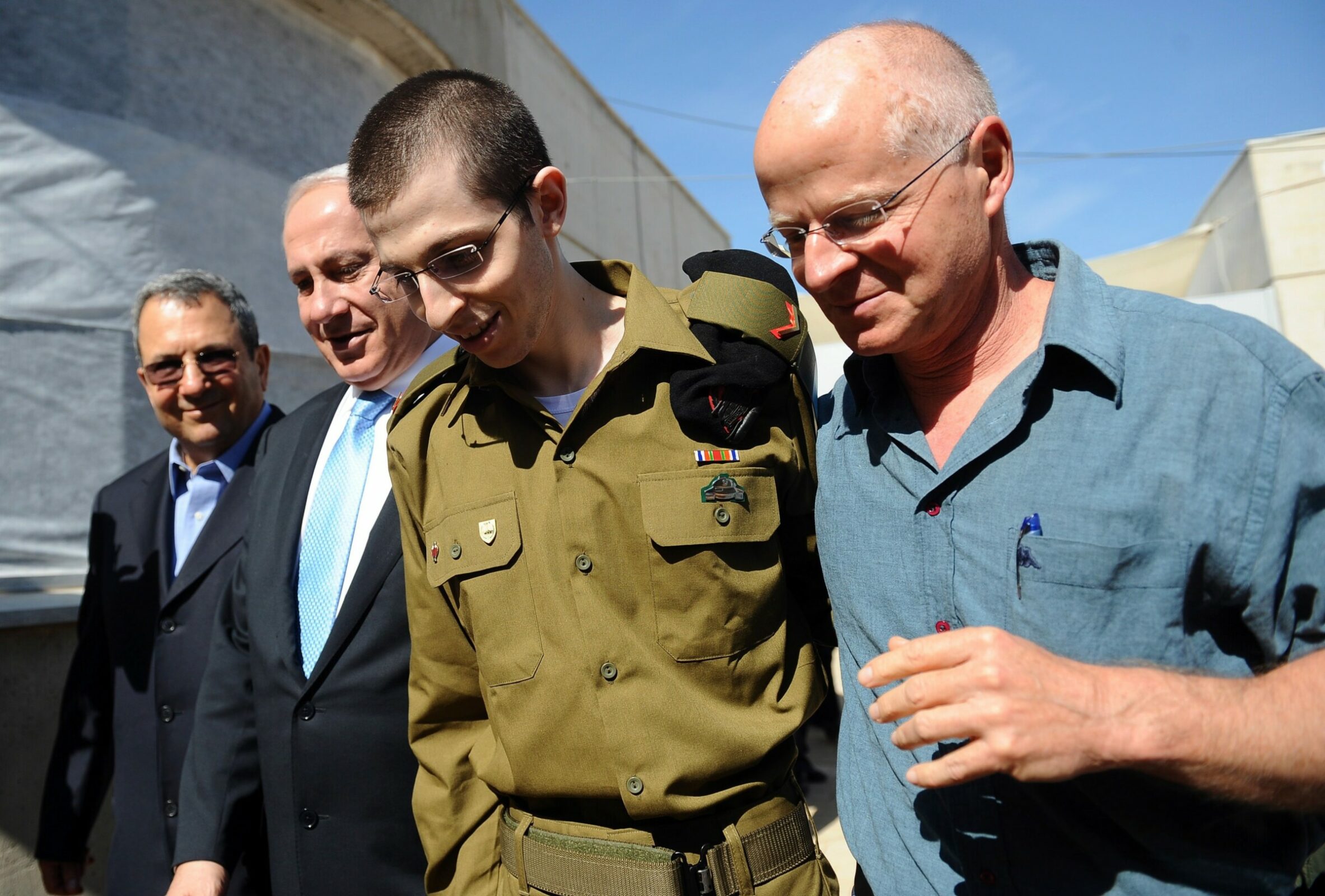Lawyers, an activist for Amnesty International and the creators of the documentary film Two Kids A day – a Palestinian and an Israeli – talk to iMEdD.
This article, published by iMEdD, is available for republication under a Creative Commons license.
Gaza: Electricity and water threatened with collapse

More than 26,751 casualties have been recorded after 117 days of Israel’s war in Gaza; furthermore the water and electricity infrastructures in the area have been severely affected. However, this is not something new, as these essential infrastructures have long suffered from problems.
During the seven-day ceasefire at the end of November last year, 110 Israeli and foreign citizens held hostage by Hamas were exchanged for 240 Palestinian detainees in Israeli prisons.
In the most recent exchange, the vast majority of those released were civilians: women, young people, and children. However, data analysis on Palestinians released from Israeli prisons showed that the majority had not been convicted of a crime, bringing once again to the fore a practice that has been used for decades in times of tension between Israel and Palestine: administrative detention.
The highest number of detainees in the last decade
“So we’re talking about administrative detention, which is detention without charges,” tells iMEdD Dr. Smadar Ben-Natan, Israeli human rights lawyer and affiliate faculty at the University of Washington in the United States. “It’s a measure of war,” she says. “What is happening, obviously, in the occupied Palestinian territories since 1967 is not a war. It is a military occupation that is controlling a huge population now, amounting to about 7 million people,” she says. As she explains, in Palestine, the practice has been used as a measure against local uprising, initially by the British colonial government and subsequently by Israel. According to the Palestinian NGO ADDAMEER, there are currently an estimated 9,100 Palestinians in Israeli prisons, of which 3,558 are under administrative detention.
Before October 7 and the Hamas attack on Israel, the number of detainees in administrative detention was already the highest of the past decade. According to the NGO B’Tselem – the Israeli Information Center for Human Rights in the Occupied Territories– last September, 1,310 Palestinians, including 146 children, were held in military detention centers and prisons in Israel.
Dr. Ben-Natan, who specializes in criminal justice and human rights in Israel, explains that for decades, Israel has tried not to use administrative detention, as it was considered a “controversial and very oppressive” method. She notes that there had been periods when Israel held between 100 and 300 people in administrative detention. “I haven’t done the whole chronology, but from my general knowledge of the field in terms of numbers, it’s unprecedented and this conflict actually started at a point where it was already unprecedented,” she says.
Immediately after Israel invaded Gaza, the number of detainees in administrative detention increased dramatically to over 2,000. Along with the arrests of Palestinians in the West Bank, the arrests of Gaza residents increased, too. In early January, according to a publication of the Israeli newspaper Haaretz, there were 661 Palestinian detainees, a 150% increase in the number of Gaza residents already detained on Israeli territory. A previous report even stated that some of them had already died under unspecified circumstances.

Predetermined detention
In a publication of the newspaper Haaretz in August 2023, the Israeli Defense Forces (IDF) spokesman stated: “Administrative detention is only used when security authorities have reliable information indicating a clear and present danger posed by the detainee and a lack of other options to remove the danger. The number of administrative detainees reflects the security threat posed by each detainee.”
Although Israel claims that administrative detention is a legitimate way to deter and contain violence in the region, “Israel has systematically used administrative detention as a tool to persecute Palestinians, rather than as an extraordinary and selectively used preventative measure,” Amnesty International stated in a recent report. Among those arrested are activists, journalists, but also students, women and children.
Waed Abbas, Amnesty International’s research and communications campaign assistant in East Jerusalem, tells iMEdD that the practice should be applied as an exception to the rule. “It’s being used as the rule and not as the exception, which is why it’s extremely terrifying”, she says. “It’s also important to zoom out and look at the bigger picture and realize that this is not happening kind of in a vacuum or separately of other human rights violations,” she adds.
The detention and imprisonment of Palestinians is decided by military courts, while cases of Israeli citizens living in the same occupied territories are heard by civilian courts. Depending on the offence, their detention can be extended for six months at a time on the basis of renewable detention orders. According to the military order governing administrative detention in the West Bank, detainees must be brought before a judge to have their detention order validated. However, according to a publication of Haaretz, 99.7% of the cases result in predetermined convictions in court and imprisonment. “Neither the detainee nor the lawyer, are aware of the evidence they are being put into detention for and this kind of gives, you know, a free rein in terms of how to control these detainees, their life and their freedom, their right to freedom among a list of other rights,” Abbas says.
The detention and imprisonment of Palestinians are decided by military courts, while cases of Israeli citizens living in the same occupied territories are heard by civilian courts. Depending on the offense, their detention can be extended for six months at a time based on renewable detention orders. According to the military order governing administrative detention in the West Bank, detainees must be brought before a judge to have their detention order validated. However, according to a publication of Haaretz, 99.7% of the cases result in predetermined convictions in court and imprisonment.
It’s being used as the rule and not as the exception, which is why it’s extremely terrifying […] It’s also important, to zoom out and look at the bigger picture and realize that this is not happening kind of in vacuum or separately of other human rights violations
Waed Abbas, Amnesty International’s research and communications campaign assistant in East Jerusalem
“Neither the detainee nor the lawyer are aware of the evidence they are being put into detention for, and this kind of gives, you know, a free rein in terms of how to control these detainees, their life and their freedom, their right to freedom among a list of other rights,” Abbas says.
The practice of administrative detention is a violation of international law and contravenes both the Apartheid Convention and the Rome Statute. However, as presented in the Amnesty International report, the State of Israel has created more than 1,000 new military decrees to illegally detain Palestinian citizens simply for expressing their opinions openly or on social media.
Juvenile incarceration: a lost generation
Muhamad was 16 years old when he was arrested in Aida Camp, near Bethlehem, for throwing stones. It was the first time he was alone, away from his family, in an unfamiliar place. He was sleepless and exhausted. In the white room, behind his computer screen, the interrogator addressed him sharply and disparagingly. “Why are you afraid to tell me their names? Most of them are in prison anyway,” he told him, trying to get him to betray his peers. “Who do you play football with?” he asked him as the hour ticked by. “Tell me who you were playing with!” he screamed, slamming his hand on the table.
The scene from the recent documentary Two Kids A Day, which won the Japan Prize for Educational Media 2023 in mid-November last year, is repeated daily in the occupied Palestinian territories. The Israeli director and producer of the documentary, David Wachsmann, tells iMEdD that at least two children are arrested every night by the Israeli army without any justification. Together with his Palestinian co-producer, Mohamad Babai, they conducted an investigation into the detention of minors for seven years. When they received videos of juvenile interrogations – leaked to them by their sources – they sought out and identified these children, tracking them as adults after their release.
Israel is the only country in the world where children are tried in a military court, Wachsmann confirms in an iMEdD inquiry. According to him, the Israeli army invades homes in the early morning hours when everyone is asleep and cannot react. Children are then taken by military vehicles to a facility where they wait until they are driven to the police station in the morning, he adds, explaining that the time they spend waiting is part of the torture they are subjected to before they are even brought before the interrogator, without a guardian or defense lawyer present.

Detention and incarceration of children under the age of 14 are prohibited everywhere in the world, explains Dr. Smadar Ben-Natan. The standards and rules of international law are broad but underline that the detention of minors is only carried out as a last resort. “Now, in the case of Palestinian children, detention is possible from the age of 12, and it is not used as a last resort, but many times as a first option,” she says.
Detaining and imprisoning them is “a way to control their families, their parents as well” Wachsmann says. “When they take your kid, you kind of freeze. You won’t do any of the things you want to resist.” At the same time, families have to pay bail in order for their kids to be released.
When Muhamad was released after 8 months of detention, he could no longer settle into his daily life. Shortly afterward, he was detained again. “When we met the kids, none of them talked about their fears and feelings [in relation to their incarceration]. They started making jokes and acting tough,” says Mohamad Babai. Yet, the reality was different. “In fact, when we met the [Palestinian] person who was in charge of those kids, he told us about many, many cases of kids crying at night. They wet their bed,” he adds.
The Convention on the Rights of the Child states that children should be treated differently from adults, says Dr. Ben-Natan. “They should be allowed the maximum forms of protection against detention and state violence, and any contact with the law. So any contact with the law or detention is considered harmful,” she adds.
In 2018, a group of Israeli parents, deeply concerned about the harm suffered by children in the Palestinian territories under Israeli occupation, founded the NGO Parents Against Child Detention. As the documentary shows, the detention and incarceration of minors is very damaging to Palestinian society. It is estimated that 75% of children and young people who are detained return to prison because there is no system in place to reintegrate them into society. Moreover, the experience of incarceration turns many children into fighters willing to die for the resistance, as they say.
The organization’s Chief Executive Officer and lawyer, Moria Shlomot, tells iMEdD that the ignorance of Israeli society regarding this “lost generation” is equally problematic. “You will probably be surprised to learn that Israeli society does not know what is going on [behind the Wall], how is the daily life of the Palestinians,” she says.
For this reason, both she and her associates had been holding various awareness-raising events prior to the Hamas attacks on Israel. Their campaigns led to 1,500 parents signing up to receive their newsletter and thousands sharing their content on social media.
“We felt that [Palestinian] kids’ issues are all been silenced for a few reasons,” she added. “First soldiers that are coming home from the West Bank – they are our sons and daughters, my neighbors, my friends – they’re coming home and they’re not saying what they did. I don’t know if they are ashamed. I don’t know. Maybe they are justified, you know, in terms of security, but the thing is that they are not speaking about what they actually did. […] And the [Palestinian] kids themselves, they don’t have voices. They are represented in court by Palestinian lawyers, most of them, and it seems like the Israeli society is acting like they are young terrorists. It’s very hard for Israelis to understand that we are talking about innocent children, not because they are innocent, but because a child is innocent by definition. And if he is doing such a radical thing, he is living in a radical situation.”

| Prisoner Exchange From 1983 to this day, the exchanges of Israeli and Palestinian prisoners felt disproportionate. Typical examples were the exchange of 4,500 prisoners in 1983 for 6 Israeli soldiers and 1,027 Palestinian prisoners, including Hamas members, in 2011 in exchange for the release of Israeli soldier Gilad Shalit, who had been held hostage in the Gaza Strip since 2006.As David Wachsmann explains, the increase in the number of detainees in administrative detention usually occurs during times of conflict. “It’s not something that happens on a daily basis. It occurs at certain points in time when there are hostages [on either side], and an exchange takes place. Now it’s that particular moment when it happens again.” |
